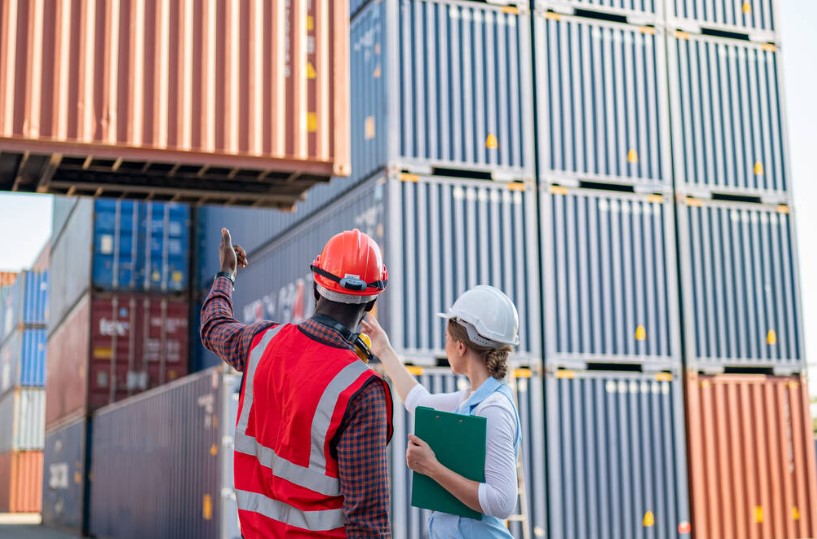In today’s interconnected global marketplace, customs services play an intricate role in shaping international trade and commerce. They are the gatekeepers that regulate the flow of goods across borders, safeguarding a nation’s security while facilitating economic growth. While the concept of customs services may seem straightforward, delving deeper into their multifaceted world reveals a labyrinth of policies, procedures, and complexities that define their functioning. In this article, we will embark on a journey through the intricate realm of customs services, exploring their pivotal role in the modern world and unraveling the layers of perplexity and burstiness within this domain.
The Evolving Landscape of Customs Services
Customs services have a rich history dating back to ancient civilizations. In Mesopotamia, merchants trading goods between the Tigris and Euphrates Rivers had to pass through customs checkpoints, showcasing the enduring relevance of customs throughout human history. However, the contemporary customs landscape has evolved dramatically, driven by globalization, technological advancements, and changing geopolitical dynamics.
One of the most perplexing aspects of modern customs services is their dynamic nature. They constantly adapt to new challenges, such as the emergence of e-commerce, the proliferation of counterfeit goods, and the need for enhanced security measures. This adaptability requires customs agencies worldwide to remain agile and responsive, making the realm of customs services an ever-changing and intricate domain.
The Regulatory Web
At the core of customs services lies a dense web of regulations and policies, both at the national and international levels. Each country has its own customs regulations, which can vary significantly from one another. This patchwork of rules adds to the overall perplexity of customs operations. Moreover, customs services are deeply intertwined with international agreements and organizations, such as the World Trade Organization (WTO) and the World Customs Organization (WCO), further complicating the landscape.

The burstiness in customs regulations arises from the need to address a wide range of issues. Customs authorities must balance the facilitation of trade with the enforcement of laws related to taxation, intellectual property rights, environmental protection, and national security. This requires them to craft rules that are both comprehensive and flexible, accommodating the diverse needs of their constituents.
Technological Advancements
In the 21st century, customs services have harnessed the power of technology to streamline their operations and enhance their burstiness. Automated systems, artificial intelligence, and big data analytics have become indispensable tools for customs authorities. These technologies enable customs agencies to process large volumes of data in real-time, identify high-risk shipments, and facilitate the movement of legitimate goods.
However, the integration of technology into customs services has brought its own set of challenges. Cybersecurity threats and data privacy concerns have added layers of complexity, necessitating continuous adaptation and investment in cybersecurity measures. The burstiness in this context stems from the rapid pace of technological advancement and the need for customs authorities to stay ahead of emerging threats.
Trade Facilitation and Economic Impact
Customs services are not mere gatekeepers; they also play a crucial role in trade facilitation and economic development. By expediting the movement of goods, reducing trade barriers, and ensuring compliance with international trade agreements, customs agencies contribute significantly to a country’s economic prosperity.
This economic dimension introduces another layer of perplexity. Customs authorities must strike a delicate balance between enforcing regulations and promoting trade. The burstiness here arises from the need to adapt to shifting economic priorities, negotiate trade agreements, and respond to geopolitical developments that can impact international commerce.
The Human Element
While technology has revolutionized customs services, the human element remains central to their functioning. Customs officers are at the frontlines, making critical decisions that can affect trade, national security, and public safety. Their training, judgment, and professionalism are essential components of the customs ecosystem.
The burstiness in this context is evident in the wide-ranging responsibilities of customs officers. They must handle diverse tasks, from inspecting cargo and verifying documents to detecting illicit activities and fostering positive trade relations. Moreover, customs officers often work in challenging environments, including ports, airports, and border crossings, where they must adapt to ever-changing circumstances.
Globalization and Supply Chains
Globalization has transformed the way goods are produced, transported, and distributed. Supply chains now span continents, and customs services are integral to ensuring their smooth operation. The complexity of global supply chains adds to the perplexity of customs services, as they must navigate intricate networks of suppliers, manufacturers, and distributors.
The burstiness in this context arises from the need to address supply chain disruptions, respond to crises, and adapt to new trading patterns. Recent events, such as the COVID-19 pandemic, highlighted the critical role of customs services in managing global supply chains and ensuring the timely delivery of essential goods.
Conclusion
In conclusion, customs services are a multifaceted and dynamic domain that embodies both perplexity and burstiness. They operate at the intersection of international trade, security, technology, and human expertise. Customs agencies worldwide face the ongoing challenge of balancing the enforcement of regulations with the facilitation of trade, all while adapting to a rapidly changing global landscape.
As we navigate the complexities of customs services, it becomes evident that their role extends far beyond mere bureaucracy; they are the guardians of a nation’s economic interests and security. The intricate web of regulations, the relentless pace of technological advancement, and the diverse responsibilities of customs officers make this domain a fascinating tapestry of challenges and opportunities. In the ever-evolving world of customs services, it is adaptability and innovation that will continue to drive their effectiveness and relevance in the modern era.
